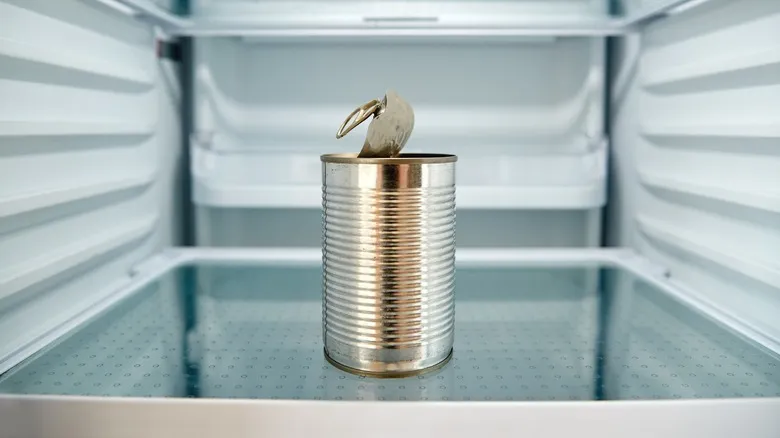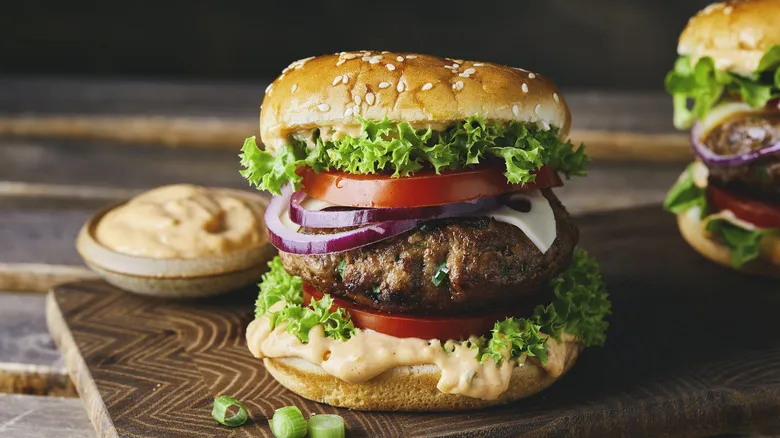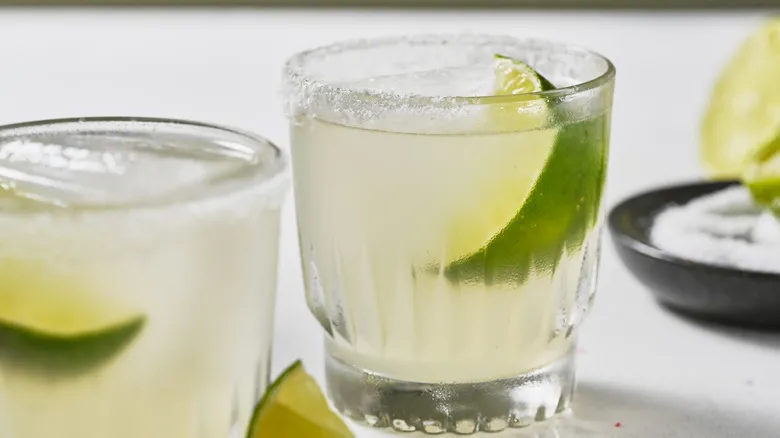Is there cause for concern?
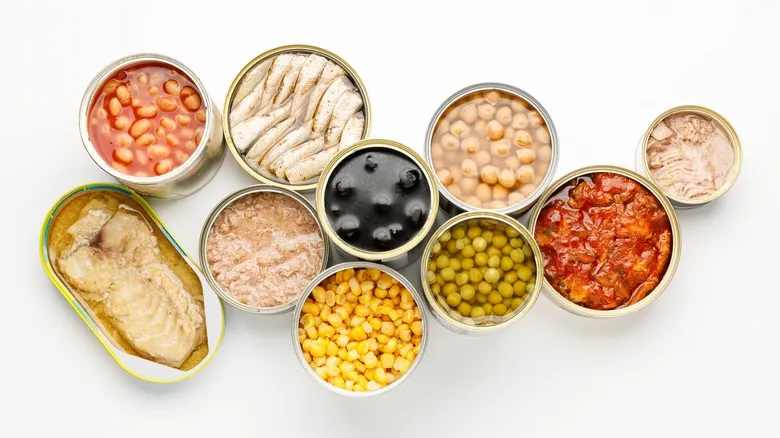
While the idea of metals contaminating your canned foods can be alarming, there's not much to worry about if you're simply using the can for storage. Most food cans in the U.S. are made from steel, which may release tiny amounts of chromium and nickel under certain conditions, such as when cooking. For example, a study published in the Journal of Agriculture and Food Science found that these metals can be present in foods prepared in stainless steel cookware for varying lengths of time. However, if you're not cooking in the can, it's perfectly safe for food storage.
To prevent rust and maintain food quality, manufacturers apply protective coatings to the interior of steel food cans. Interestingly, the epoxy resin traditionally used in these linings often contained BPA, a chemical associated with endocrine disorders and other health concerns. The FDA carefully regulates BPA levels in food packaging to ensure consumer safety, and according to the Can Manufacturers Institute, 98% of food cans produced in the U.S. now feature BPA-free linings.
Regarding cross-contamination, it's important to clean food cans before opening them to avoid the spread of germs and bacteria, which can lead to foodborne illnesses. Dust, dirt, and other particles can accumulate on cans during storage. For added safety, wipe the lid of the can before opening it, and transfer its contents to a new, clean container. This practice helps maintain the freshness of any leftovers, making it clear that storing food in an open can is not the best option.
Storing food in opened cans diminishes quality and flavor
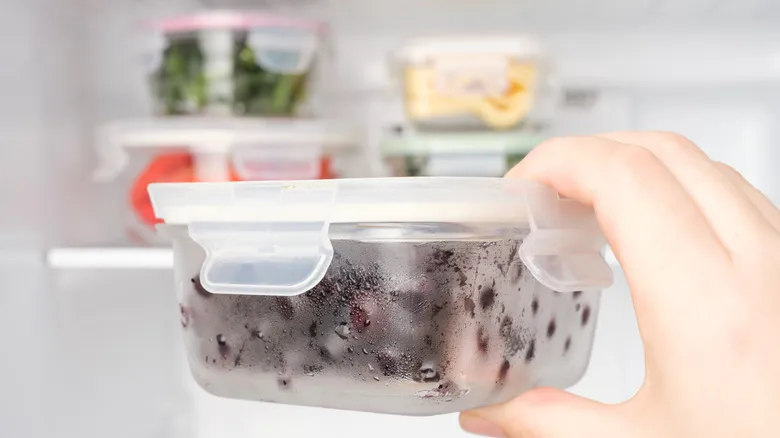
The USDA has confirmed that it is safe to keep food in opened cans for a limited period, which varies based on the contents. High-acid canned items, such as tomato products, fruits, and foods in vinegar-based sauces, can be stored in their original cans for five to seven days. In contrast, low-acid canned goods like meat, beans, and corn should only be kept in opened cans for three to four days. The USDA recommends a more effective alternative: transferring the contents to a glass or plastic storage container.
Storing leftover canned food in a sealed, airtight container in the refrigerator will help maintain its flavor and quality. For optimal results, choose a container with a silicone or rubber sealing system. This approach prevents air and moisture from reaching the food, closely resembling the canning process. It is still advisable to consume opened canned foods within the same timeframe recommended by the USDA for canned storage. However, you can be confident that they will taste fresher and better when stored in an airtight container, enhancing the quality of your next meal.
Companies are exploring innovative methods to reseal canned goods after opening, which could eventually provide a more dependable storage solution. Until such advanced food storage technologies become widely accessible, your reliable plastic or glass containers remain the best option.
Recommended

Ina Garten's Special Fried Chicken Tip For Breezy 4th Of July Cooking

Your Complete Guide To Using Turmeric In The Kitchen
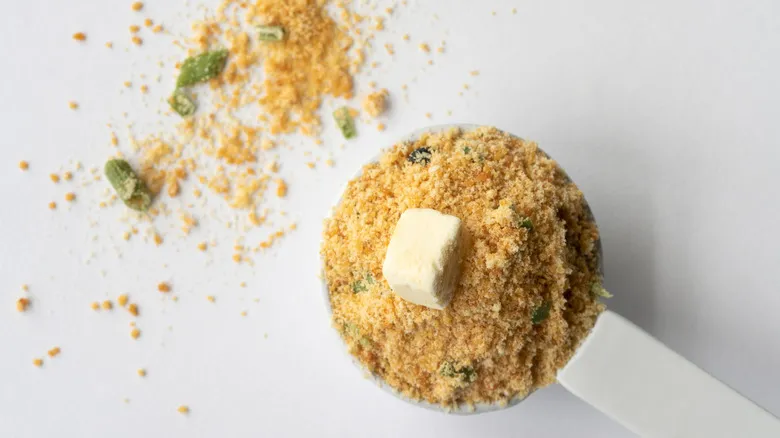
The Pantry Ingredient That Will Revolutionize Your Potato Chip Dip
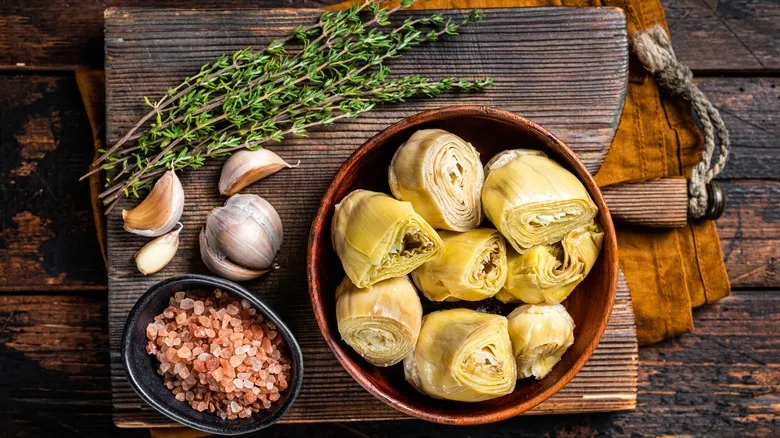
5 Delicious Ways To Eat Canned Artichoke Hearts
Next up

